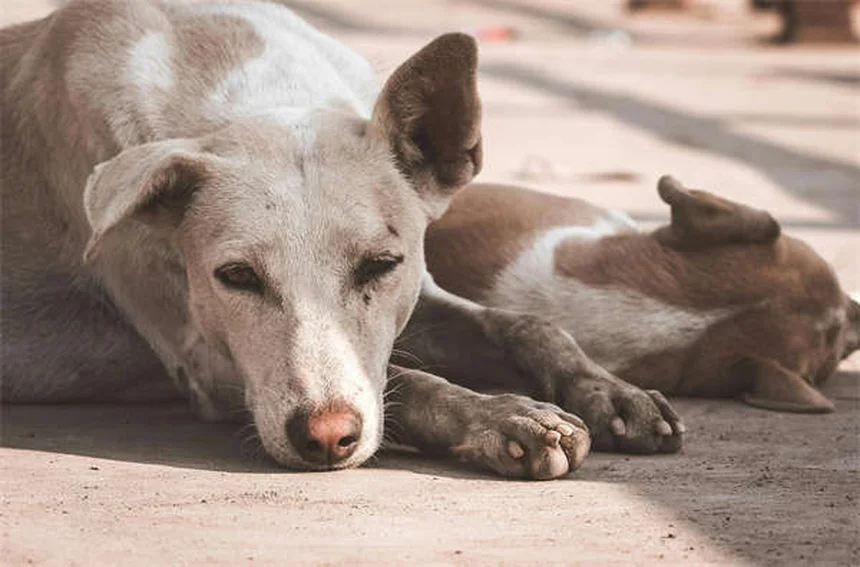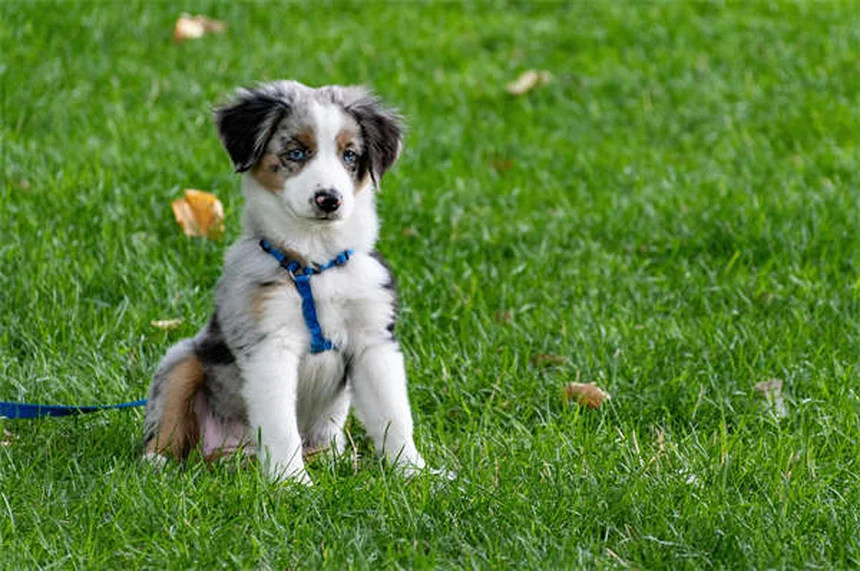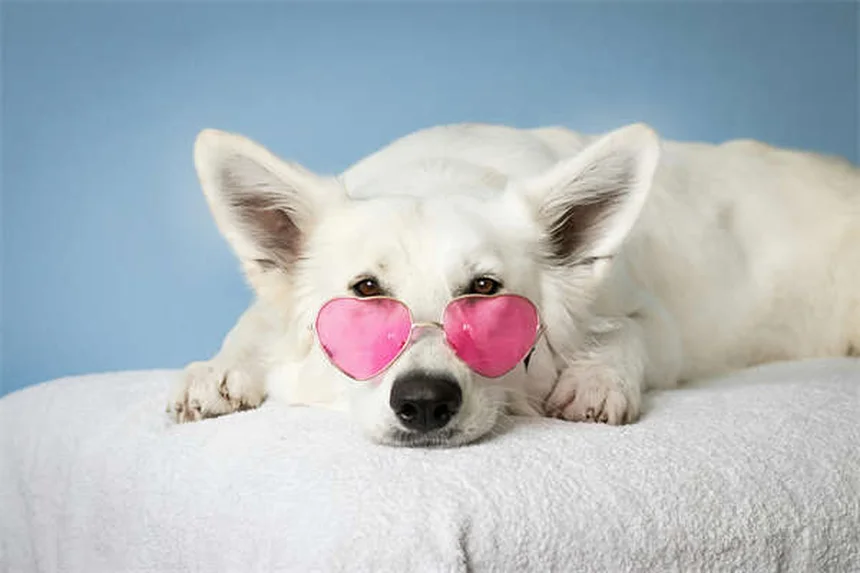Why does losing a dog hurt more than losing some people? The answer is simple: dogs give us pure, unconditional love that's unlike any human relationship. As a vet tech who's worked with thousands of pet owners, I've seen firsthand how the bond between humans and dogs creates a unique kind of grief when it's broken.Let me tell you straight - it's completely normal to feel devastated when your dog passes. These amazing creatures become our daily companions, our emotional support systems, and often our closest friends. Unlike human relationships that can be complicated, your dog loves you without judgment or conditions. That's why the pain cuts so deep when they're gone.In this article, we'll explore why dog loss affects us so profoundly and how to navigate this very real grief. Whether you're currently mourning a furry friend or just want to understand this special bond better, I'll share my professional insights and personal experiences to help you through.
E.g. :Wolf Teeth in Horses: What Every Owner Should Know (2024 Guide)
Advertisement
- 1、The Unbreakable Bond Between Humans and Dogs
- 2、The Devastating Impact of Losing a Canine Companion
- 3、Navigating the Grief of Pet Loss
- 4、The Beautiful Cycle of Canine Companionship
- 5、The Science Behind the Human-Dog Connection
- 6、The Evolutionary Reasons Dogs Became Our Best Friends
- 7、The Modern Benefits of Dog Ownership
- 8、The Future of Human-Canine Relationships
- 9、FAQs
The Unbreakable Bond Between Humans and Dogs
Why Dogs Become Family
Let me tell you something - dogs aren't just pets. They become family members in every sense of the word. Unlike human relatives who grow up and move on with their lives, my dog Moosh was my constant companion for 12 incredible years. We shared everything - from morning walks to late-night cuddles, from exciting adventures to quiet evenings at home.
Think about this: How many people in your life give you unconditional love 24/7? That's exactly what Moosh did. While human relationships can be complicated with expectations and judgments, my dog loved me simply for being me. He didn't care if I had a bad hair day or made mistakes at work. His tail would wag just as enthusiastically whether I came home from winning the lottery or losing my job.
The Daily Routines That Create Deep Connections
Our lives became completely intertwined. I structured my entire schedule around his needs - morning walks at 6:30 AM sharp, dinner at 5 PM, bedtime cuddles at 10 PM. In return, he gave me pure joy and companionship that no human relationship could match.
Here's a simple comparison of what Moosh gave me versus human relationships:
| Aspect | Human Relationships | Relationship with Moosh |
|---|---|---|
| Unconditional Love | Sometimes conditional | Always unconditional |
| Daily Presence | Often separate lives | Constant companionship |
| Non-judgmental Support | May offer opinions | Always accepting |
The Devastating Impact of Losing a Canine Companion
 Photos provided by pixabay
Photos provided by pixabay
When the Unthinkable Happens
Cancer took Moosh from me far too quickly. One day we were playing fetch in the park, and what felt like moments later, I was saying goodbye. The pain was unlike anything I'd ever experienced - sharper than losing human relatives, deeper than any breakup.
I couldn't function normally for weeks. Simple things like making coffee in the morning became painful because I didn't have my furry friend waiting patiently for his breakfast. The house felt empty without the sound of his paws on the hardwood floors.
Why Dog Loss Hits Differently
Why does losing a dog hurt so much more than losing some human relatives? Here's the truth - our relationships with dogs are simpler but more consistent. They rely on us completely, and we structure our lives around them. When they're gone, we don't just lose a pet - we lose a daily companion, a routine, and a source of unconditional love.
Human relationships, while important, often come with complications. We might see relatives only on holidays or have complicated histories with them. But with Moosh, every single day was filled with simple, pure connection. That's why the absence leaves such a gaping hole.
The Misunderstood Pain
Many people didn't understand my grief. "He was just a dog," they'd say. But those words cut deep. Moosh wasn't "just" anything - he was my best friend, my confidant, my daily dose of happiness.
Research actually shows that losing a pet can be as painful as losing a human family member. The grief follows similar patterns, yet society often doesn't recognize it as legitimate. That makes the healing process even harder when you feel like you have to hide your pain.
 Photos provided by pixabay
Photos provided by pixabay
When the Unthinkable Happens
Eventually, I realized that getting another dog wasn't replacing Moosh - it was honoring his memory by giving another animal the same love he received. The heart has an amazing capacity to expand, and while no dog will ever be Moosh, each brings their own unique joy.
Here's what helped me through the darkest days:- Creating a photo album of our adventures- Planting a tree in his memory- Volunteering at a local animal shelter- Eventually opening my heart to another rescue dog
The Beautiful Cycle of Canine Companionship
Why We Keep Loving Despite the Pain
Some people asked why I'd put myself through this pain again. But here's the thing - the years of love and laughter far outweigh the final heartbreak. Dogs teach us about living in the moment, about unconditional love, about simple joys.
Now, years later, I still miss Moosh terribly. But I also have two new dogs who fill my days with happiness. They're different personalities, with their own quirks and charms, but they remind me daily of why we welcome these amazing creatures into our lives.
A Final Thought on Pet Loss
If you're grieving a pet right now, know that your pain is valid. Don't let anyone tell you it's "just" an animal. Honor your feelings, cherish the memories, and when you're ready, consider opening your heart again. The world needs more people who understand the profound bond between humans and dogs.
And remember - while dogs may only be part of our lives, to them, we are their whole world. That's a privilege worth every tear.
The Science Behind the Human-Dog Connection
 Photos provided by pixabay
Photos provided by pixabay
When the Unthinkable Happens
You know that warm, fuzzy feeling you get when your dog looks into your eyes? That's not just emotion - it's actual chemistry at work! When humans and dogs interact, both species experience a surge in oxytocin, the same hormone that bonds mothers with their babies.
Studies show that just 15 minutes of petting your dog can increase your oxytocin levels by up to 300%. That's why coming home to your pup after a bad day feels like instant stress relief. Our bodies are literally wired to respond to canine companionship with feel-good chemicals. Pretty cool, right?
How Dogs Read Our Emotions Better Than Humans
Ever notice how your dog seems to know when you're sad before anyone else does? Research from the University of Lincoln found that dogs can recognize human emotions by combining information from different senses - something even our closest primate relatives can't do!
Here's an amazing example: When you cry, your dog doesn't just hear the sound. They can smell the chemical changes in your body and see the distress on your face. Then they put all this information together to respond appropriately - whether that's cuddling close or bringing you their favorite toy. How many humans in your life can read you that accurately?
The Evolutionary Reasons Dogs Became Our Best Friends
From Wolves to Woofs - The 15,000 Year Journey
Let's take a quick trip back in time - about 15,000 years ago when wolves first started hanging around human camps. These early dogs weren't the cuddly companions we know today, but they played a crucial role in human survival.
Early humans benefited from the wolves' hunting skills and alarm barks, while the wolves got access to food scraps and protection. Over thousands of years, the friendliest wolves thrived near humans, eventually evolving into the domesticated dogs we know today. It's one of the most successful interspecies partnerships in history!
Why Dogs and Humans Are Evolutionary Perfect Matches
Here's something fascinating - dogs and humans evolved similar social structures independently. Both species live in family groups, care for their young extensively, and even have similar communication styles (think about how dogs use eye contact just like we do).
This parallel evolution created the perfect foundation for our special bond. While cats were domesticated for pest control and horses for transportation, dogs were literally bred to be our companions. That's why they're the only animals that consistently seek out human eye contact - they're hardwired to connect with us!
The Modern Benefits of Dog Ownership
Puppy Power - How Dogs Boost Our Health
You probably know dogs are good for your mental health, but did you know they can actually add years to your life? A comprehensive study of 3.8 million people found that dog owners had:
| Health Benefit | Dog Owners | Non-Dog Owners |
|---|---|---|
| Lower Blood Pressure | 24% less likely | Normal risk |
| Heart Attack Survival | 33% better | Normal rate |
| Daily Exercise | 57 minutes more | 30 minutes less |
And get this - dog owners who suffered heart attacks were significantly more likely to survive than cat owners or people without pets. That daily walk around the block with Fido might be saving your life without you even realizing it!
The Social Superpowers Dogs Give Us
Remember how hard it was to make friends as a kid? Dogs solve that problem instantly! A University of Western Australia study found that dog owners are five times more likely to get to know people in their neighborhood than non-dog owners.
I've lost count of how many friendships started because someone stopped to pet my dog at the park. Dogs are the ultimate icebreakers - they give strangers permission to start conversations and create instant common ground. In our increasingly isolated world, that's a pretty powerful superpower!
The Future of Human-Canine Relationships
How Technology Is Changing Dog Ownership
From GPS trackers to automated feeders, technology is revolutionizing how we care for our pups. But the coolest innovation? Dog communication buttons! These programmable buttons allow dogs to "talk" by pressing buttons for words like "outside," "play," or "love you."
Some particularly clever dogs have learned to combine words to form simple sentences. Imagine coming home to your dog pressing "love you" and "happy" when you walk in the door! While they'll never speak English, these tools are helping us understand our furry friends better than ever before.
The Rise of Emotional Support and Therapy Dogs
We're finally recognizing what dog lovers have known all along - that canine companionship has serious therapeutic value. Today, specially trained dogs help with everything from PTSD to autism, from hospital recovery to classroom learning.
Why does this matter so much? Because it validates the deep emotional connection we share with dogs. When science backs up what our hearts have always told us, it opens doors for more people to experience the healing power of the human-dog bond. And that's something worth wagging about!
E.g. :Coping with Losing a Pet: How to Grieve a Pet
FAQs
Q: Is it normal to grieve a dog more than some human relatives?
A: Absolutely, and here's why. The relationship you have with your dog is completely unique - it's built on daily routines, physical touch, and unconditional acceptance. While human relationships can be complicated by history or expectations, your dog loves you purely in the moment. As a vet tech, I've seen countless clients who feel guilty about grieving their dog "too much," but research shows pet loss often triggers grief as intense as losing a human family member. Your feelings are completely valid.
Q: How long does the grief last after losing a dog?
A: There's no set timeline for grief, but I can tell you from experience that the intense pain typically lasts several weeks to months. What's important to remember is that grief isn't linear - you might have good days and bad days. The first year is often the hardest as you experience all the "firsts" without your furry friend. Be patient with yourself, and don't let anyone tell you to "get over it." Healing happens at your own pace.
Q: Why do I feel guilty about getting another dog?
A: This is so common! Many of my clients worry they're "replacing" their lost pet. But here's the thing - no dog can replace another. Each has their own personality and place in your heart. Getting another dog isn't about forgetting; it's about honoring the love you shared by giving another animal a wonderful home. When you're ready, you'll know - and your heart will make room for new love while keeping the old.
Q: How can I memorialize my dog properly?
A: There are so many beautiful ways to honor your dog's memory. Some of my favorites include creating a photo book of your adventures, planting a memorial tree, or making a donation to an animal shelter in their name. Many of my clients find comfort in keeping their dog's collar or favorite toy in a special place. What matters most is choosing something that feels meaningful to your unique relationship.
Q: Should I be there when my dog is euthanized?
A: As someone who's been through this both professionally and personally, I strongly recommend being present if you can. It's one of the hardest things you'll ever do, but your dog has been there for you their whole life - they deserve your comfort in their final moments. We vets see how much pets look for their owners in those last seconds. Staying shows them love until the very end, and while painful, most people ultimately find peace in having provided that final gift.

